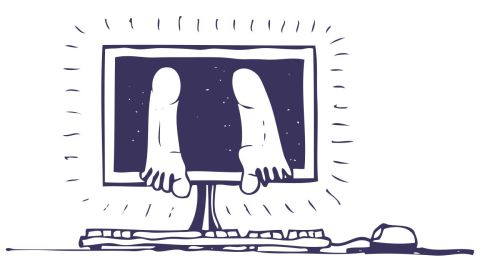How to Stop Procrastinating and Use Facebook Productively

What’s the Big Idea?
One of the key take-home messages of Charles Duhigg’s new book The Power of Habit – Why We Do What We Do in Life and Business is that habits are pernicious little buggers. Over time, they become hardwired in the brain such that you can’t just will yourself to change them.
Take Facebook. The average person spends nearly 80 hours per month on Facebook. No doubt a healthy portion of that time can be considered procrastination. After all, we are attached to computers, and it is all too easy to seek that “reward,” as Duhigg puts it, since there is no equivalent “work reward” that can compete with scrolling through pictures and profile updates.
So how can you break this habit and be more productive?
Duhhig says go ahead, and take 5 minutes per hour. That’s right, don’t ignore the urge, actually put it on your schedule. In other words, once a habit exists, Duhigg says, “you can’t just pretend it’s not there.” So if you schedule this time as a 5-minute break from work, your behavior won’t explode (as it might be now) into 45-minute sessions of pure distraction.
Watch the video here:
“Willpower is a muscle,” Duhigg says, “and the same is true with our ability to focus.” Therefore he recommends you practice “going longer and longer without taking a 5-minute break. Then you will be able to focus longer.”
What’s the Significance?
In tough economic times, businesses strive to do more with less. For workers, this means more responsibility and higher expectations of productivity. This produces anxiety, which can lead to wrong decisions – at every level of a company – about how best to realize our goals.
Now, more than ever, employers and workers need to understand how habits operate. Resourcefulness in times of crisis depends upon creativity, which is only accessible when we work realistically – organizing our time and efforts in ways that take human psychology into account.
Management really needs to take the lead here, building an office culture that supports and rewards genuine, sustainable progress more than it does the appearance of effort.
Jason Gots contributed to this post.





